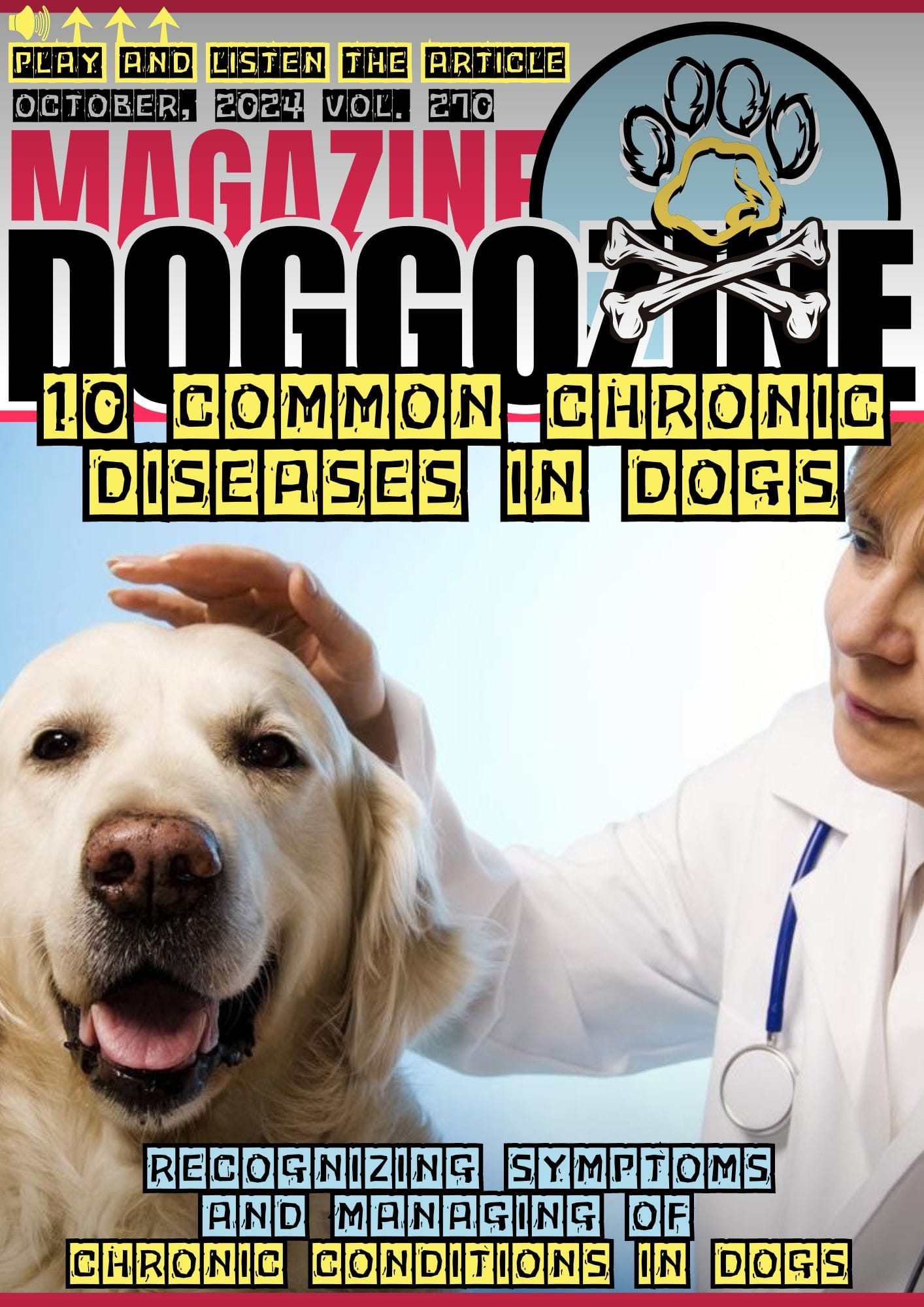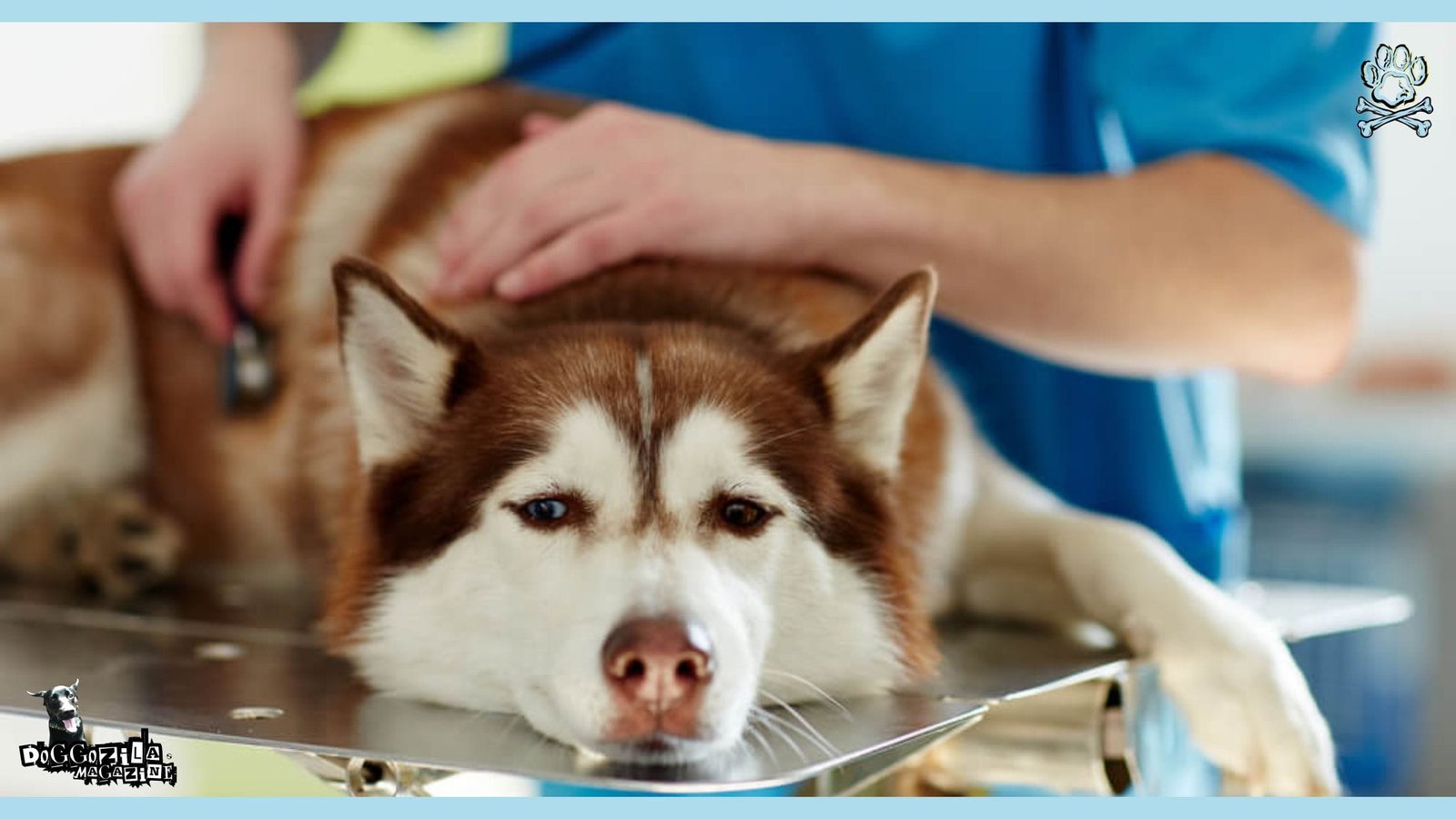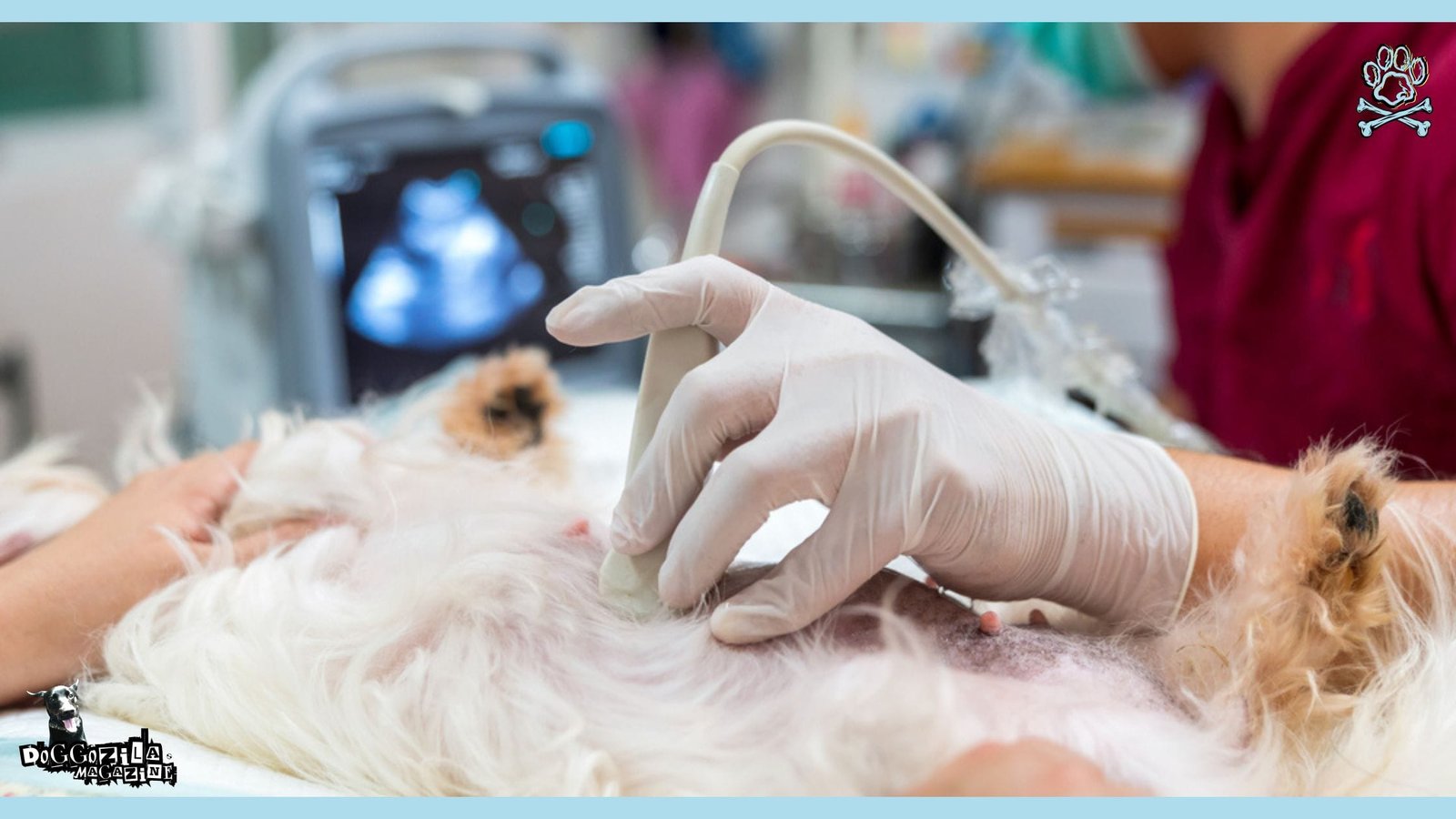When we think of our dogs, we usually see them as lively creatures playing around with wagging tails, up to some mischief all the time. But akin to humans, dogs too can contract chronic diseases impacting their health and overall life quality over time.
These conditions require constant care, and sadly, many of our cherished, furry companions become vulnerable to them as they grow old. Discovering them early and taking preventative measures can greatly change the outcome of these conditions and will enhance the life quality for your dog.
In this blog post, we’ll go through the ten frequently seen chronic diseases in dogs, and shed light on the most common symptoms and therapy methods. Also, we’ll share tips on how you can keep your furry friend as healthy as possible.

WHAT ARE THE MOST COMMON CHRONIC DISEASES IN DOGS?
Before we get into specifics, note that chronic diseases in dogs develop gradually. Sometimes the symptoms might present themselves but they may not be very clear, meanwhile in other instances, these signs could become apparent all at once. Grasping the early warning indications and working together with your vet to manage these conditions is key for maintaining your dog’s health over time.
Now, let’s proceed with the 10 most common chronic diseases in dogs.
Arthritis
Arthritis is one of the most common chronic diseases in dogs, especially older ones. What happens is there is wear and tear on joint cartilage, leading to pain, rigidness, and issues related to movement. According to statistics, 80% of dogs over the age of 8 get it.
- Symptoms: Your pet might display symptoms including limping or difficulty getting up from lying down for extended periods. They might become less enthusiastic about their daily walks. One of my older dogs began having difficulty climbing stairs, prompting an examination by our vet which confirmed an early form of arthritis in my pet.
- Therapy: Unfortunately, there is no known cure for arthritis in dogs; therefore the goal should be to ease your pet’s life as much as possible and make his daily activity as comfortable as possible. Your veterinarian might suggest pain relievers, joint boosters, and physical training for your canine companion with arthritis.
Warm baths have made an extraordinary difference for my own dog. I fill up the bathtub so he can lie comfortably, give him plenty of treats, and spend quality time together.
Diabetes
Like humans, dogs too may suffer from diabetes which hinders their ability to effectively regulate their blood sugar levels. It can happen at any age, most of the time, it happens in dogs over the age of five.
- Symptoms: Keep an eye out for increased thirst, frequent need to urinate, and weight loss despite eating regularly. My friend noticed his Labrador was drinking large volumes of water during a heat wave he thought could just be thirst; when taken to his vet they discovered his blood sugar had skyrocketed instead. Luckily, it all ended well, and now his pup is doing great!
- Treatment: Diabetes is a lifelong disease and should be managed accordingly with insulin shots or pills, and changing your pup’s eating habits to include food that’s low in fats and sugars while boasting plenty of fiber content. Furthermore, be sure to regularly monitor their glucose levels so as to prevent prolonged spikes.

Chronic Kidney Disease
Chronic Kidney Disease (CKD) is another disease commonly seen among aging dogs. Over time, their kidneys slowly lose the capacity to filter waste out of the bloodstream, leading to build-ups of toxins in their system, and if left untreated, leading to chronic kidney failure.
- Symptoms: Pets suffering from Canine Kidney Disease may display signs such as vomiting, lethargy, and loss of appetite. In the beginning, these symptoms look like your mischievous pup ingested something they shouldn’t have. However, take those signs seriously and schedule a vet visit. Taking action early could save their lives later on!
- Treatment: Therapies used to slow the progression of kidney disease typically include medications, special renal diets, and sometimes fluid therapy to preserve kidney function.
Hypothyroidism
Hypothyroidism occurs when your dog’s thyroid gland fails to produce sufficient hormones needed to balance his metabolism, typically seen among medium and large-bred breeds and often leading to reduced bodily functions in these dogs. This condition typically manifests itself within months or even years and often impacts vital bodily processes negatively.
- Symptoms: Signs include weight gain, fur loss, and fatigue in dogs. Furthermore, their skin may turn dry and flaky.
- Treatment: Daily thyroid hormone replacement medications must be given in order to regain a regular metabolism for your dog. Be sure to visit the veterinarian periodically so they can adjust dosage as required.
Heart Disease in Dogs
Congestive heart failure or CHF is an ongoing, serious issue among canines. When their heart becomes compromised due to CHF, fluid builds up within their lungs which affects breathing.
- Symptoms: Dogs suffering from heart disease might start coughing frequently or find breathing difficult; fatigue during physical activities could also occur quickly.
- Treatment: Drugs may be prescribed to enhance heart performance and decrease fluid accumulation, while diet changes, such as cutting back on salt intake, may be helpful in combatting cardiovascular illness.
Cancer
Unfortunately, older dogs often succumb to certain types of cancer like lymphoma and bone tumors that often develop slowly over time requiring ongoing medical support and care. Not every form of cancer requires long-term monitoring; many require ongoing attention from dedicated veterinarians.
- Symptoms: Watch out for symptoms like lumps, unexplained weight loss, and changes to behavior patterns that make no sense- cancer could lead to fatigue and decreased interest in activities your pet once enjoyed doing.
- Treatment Options: Dog cancer treatment depends upon its type and stage. Possible solutions could include surgery, chemotherapy, or radiation; when detected early results could be significantly better.

Allergies
Dogs may develop allergies that manifest themselves as skin conditions, food sensitivities, or environmental allergens that cause discomfort to both you and your pup if left untreated properly. Without treatment, these allergies could become ongoing infections that require constant medication administration to remain under control.
- Symptoms: Common signs include scratching, developing red skin spots, and experiencing ear infections as well as digestive problems. So the next time your pup begins violently scratching in the middle of the night, have him check its skin.
- Treatment: To effectively address allergies in dogs, the key is identifying and eliminating their triggers – this might involve changing what your pup eats or making adjustments in his environment, while your vet might give medicines for managing symptoms.
Cushing’s Disease
In canines, Cushing’s Disease occurs when their bodies produce too much cortisol- an essential hormone involved with stress management and metabolism- due to an adrenal or pituitary tumor or its proximity.
- Symptoms: Dogs suffering from Cushing’s may exhibit increased thirst, weight gain, and hair loss; additionally they might exhibit what appears to be an egg-shaped belly.
- Treatment: Treatment often entails using medications to regulate cortisol levels; however, surgery may become necessary if your issue stems from an actual tumor.
Epilepsy
Epilepsy is one of the most common neurological diseases in dogs and it can be an alarming condition that results in repetitive seizures; it may seem terrifying at first sight but with proper care, many can lead relatively normal lives.
- Symptoms: Seizures come in many shapes and forms; from brief periods of confusion or intense shaking that involves all body systems to dogs showing anxiety or being confused following one.
- Treatment: Medication to stop seizures may help in managing their frequency and intensity, so regular vet checks for adjustments in treatment are recommended to make any necessary modifications to it.
Dental Disease in Dogs
Periodontal disease, often found among smaller breeds of dogs, is extremely prevalent and must be tackled quickly or it could result in infections and tooth loss if left unattended. Plaque and tartar build-up is often the culprit behind such issues and it needs to be cleared away quickly or infection could set in, which in turn might lead to infection leading to tooth loss in some instances.
- Signs: Warning signals for dental disease include bad breath, swollen gums, and difficulty with eating.
Regular dental cleanings, in combination with daily brushing of teeth and using dental chews for support can help manage and prevent dental disease in dogs. Regular visits by your veterinarian as well as providing dental chews will support his/her oral well-being and can prevent costly procedures in the future.

RECOGNIZING SYMPTOMS OF THE COMMON CHRONIC DISEASES IN DOGS
Understanding early indicators of long-term illnesses in dogs is important for effective treatment. Although some diseases show particular symptoms, there are overall signs that might suggest a hidden health problem.
Common Symptoms Across Chronic Diseases in Dogs
Dogs that have long-term illnesses frequently show signs like tiredness, weight, appetite changes, and different behaviors. If your dog appears not normal or is behaving differently than usual, it’s crucial to talk with a vet.
Regular medical check-ups by a veterinarian are very important for early identification of long-lasting diseases. Your animal doctor can conduct examination methods, like blood tests and X-rays, to discover problems before they get too serious.

MANAGING THE MOST COMMON CHRONIC DISEASES IN DOGS
The handling of ongoing illnesses in dogs demands a mix of therapy and changes to their lifestyle. Medicine is frequently needed, but other elements can greatly enhance the health condition of your dog.
Treatment Options for Chronic Conditions
Common treatments often include taking medicine, altering diet, and undergoing physical therapy. Situations may arise where your vet advises you to see a specialist like a veterinary neurologist or cardiologist for more complicated conditions.
Long-Term Care and Quality of Life
To deliver prolonged care, you must ensure that your dog is content and relaxed. This might require administering medicines, altering their food habits, and confirming they get ample sleep along with the right amount of physical activity without tiring them excessively.
Preventing The Common Chronic Diseases in Dogs
Good food, constant physical activity, and taking prevention measures are the main factors to lower the common chronic disease chances in your dogs. Keeping your dog in a healthy weight condition and providing them enough mental and body challenge, can largely prevent health-related problems.

FINAL THOUGHTS ABOUT THE MOST COMMON CHRONIC DISEASES IN DOGS
Taking care of a dog suffering from long-term sickness can be tough, but it’s vital to stay ahead and talk with your vet often. Discovering early, steady handling and giving attention on your dog’s life quality can greatly help. Don’t forget regular check-ups at the vet are very necessary for finding these common chronic illnesses before they advance further in your dogs.









